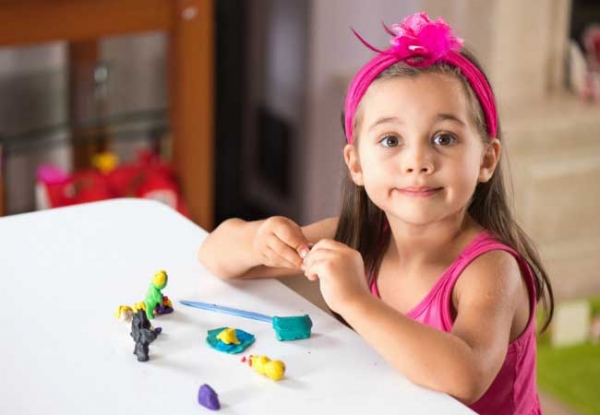
When I was a child, I had an imaginary horse named Thunder, an imaginary black panther that could talk, and even an imaginary frenemy. My cousin and I shared this fictional frenemy whom we called “Cathy” and fought her in She-Ra inspired battles. I always assumed that I had so many imaginary companions because I was an only child, but it turns out I’ve just always had a vivid imagination. “Only children, oldest children, and children who don’t watch much television are more likely to create an imaginary friend,” says Eileen Kennedy-Moore, PhD. “This probably reflects opportunity. Children need unstructured time alone to be able to invent imaginary friends,” she says.
When researching this topic, I became curious if my own children had imaginary friends because I’d never heard them speak of it. I have 2 boys who are just 2 years apart, and as they have always been constant companions, I doubted they’d invented an imaginary friend, but I was wrong. My seven year old informed me of his friend Frankie, who is a cat/dog creature with wings. Perhaps Frankie is in part responsible for the whirling mess that seems to follow that child around.
Many a worried parent has wondered, “Is an imaginary friend a sign of loneliness or social problems?”
It turns out that the opposite is true. In May, an article in Science Friday noted this: “Historically, many researchers and parents thought that imaginary companions were harmful or evil, and were a sign of a social deficit, demonic possession, or mental illness. For instance, at the University of Alabama’s Knowledge in Development (KID) Lab, lead psychologist Ansley Gilpin recently heard of a case where a parent thought her daughter might have schizophrenia. It turned out that the child just had an imaginary friend.” Happily, this is a fading idea as researchers have come to understand that not only is having an imaginary friend normal, but it can even be psychologically helpful.
In How Imaginary Friends Help Kids Grow, author Cari Romm says, “kids know they aren’t real; researchers today believe these made-up companions aren’t an indication of loneliness or a deficit of social skills so much as they are a normal way for kids to exercise their imaginations.” A 2004 study indicated that 65% of children have an imaginary friend at some point. Children as young as three can construct a made-up companion, and it’s most common between the ages of three and eight, though sometimes imaginary friends last into adolescence and rarely into adulthood. Famous mystery novelist, Agatha Christie, reportedly had them still at age 70 and preferred them to her book characters.
These fictional friends do more than exercise the imagination. Fictitious friends actually boost social and language development. They can also help children cope with life events. According to this study, children with imaginary friends are better able to understand other perspectives than their peers who do not have imaginary companions. The suggestion is that “engaging with an imaginary companion is a very rich form of role-play and thus requires the child to take on the persona of the imaginary companion and to take the companion’s perspective into account.” As a result, the creative kids who make them up are often less shy and have richer vocabularies.
The downside of imaginary friends is that sometimes they can be mischievous and tell the child to do something bad, or the child will blame the imaginary friend for poor behavior to avoid parental disapproval. On the whole, though, having an imaginary friend is a normal, healthy part of childhood.
If your child introduces you to her imaginary friend, don't be alarmed. In fact, it's the perfect opportunity to play along. Set a place at the table for the playmate if she asks you to, and take her along in the car, too. The more you can join your child in his or her wonderful imaginative world, the stronger your connection will be.